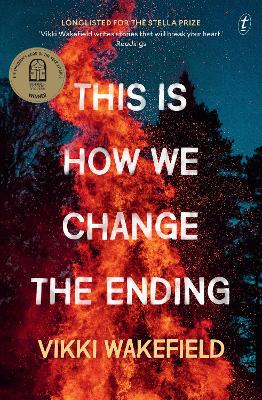Reviewed by Kelly on
Nate McKee is a pacifist, sympathetic to the environment and sustainability. Avoiding confrontation with his father, Nate escapes to Youth Works, the local youth centre where the quietude and solace allow him to gather his thoughts in a series of notebooks, composing poems and anecdotes of the things he is too afraid to say aloud. Rowley Park is a low socioeconomic suburb where only the resilient survive and for adolescents like Nate and best friend Merrick, Youth Works provides a haven for those without a safe environment at home.
This is How We Change the Ending represents our low socioeconomic communities around Australia, public schooling, government housing and often areas with above average crime rates as residents are unemployed and unable to support their families financially. Our elected governments consider them as statistics, they're often our neighbours, our friends or our own families and Nate McKee is a vulnerable young man susceptible to becoming a stereotype.
Youth Works is a government funded local initiative for the youth of Rowley Park, providing security and a sense of belonging for those feeling misunderstood, displaced or lonely. The youth counsellors are supportive and encourage adolescents to become independent and motivated, including Nate and Merrick, friends and neighbours since childhood. Merrick is spontaneous, charismatic and a steadfast friend, although underappreciated. Nate is also challenged by English teacher Mister Reid, to think laterally and creatively. He instills a sense of confidence and ambition in his students. Mister Reid and counsellor Macy are important influences for Nate and through their interactions, he's determined to become more than a statistic.
This is How We Change the Ending is harrowing, traumatic and incredibly optimistic. Vikki Wakefield captures the voice of Australia's toughest and most vulnerable families throughout our working class and low socioeconomic suburbs. Authentic, compassionate and a remarkable narrative cementing Vikki Wakefield as an exceptional Australian young adult author. Sublime reading.
Reading updates
- Started reading
- 9 October, 2019: Finished reading
- 9 October, 2019: Reviewed
